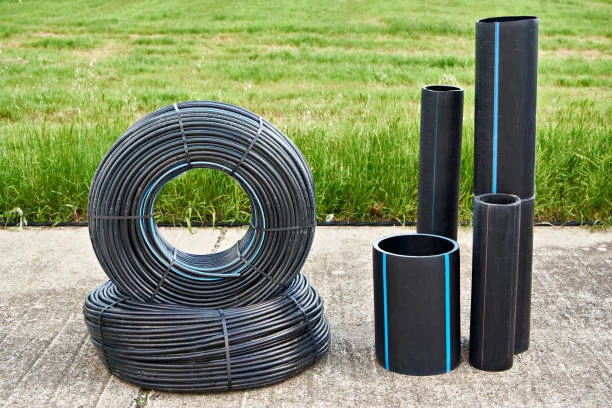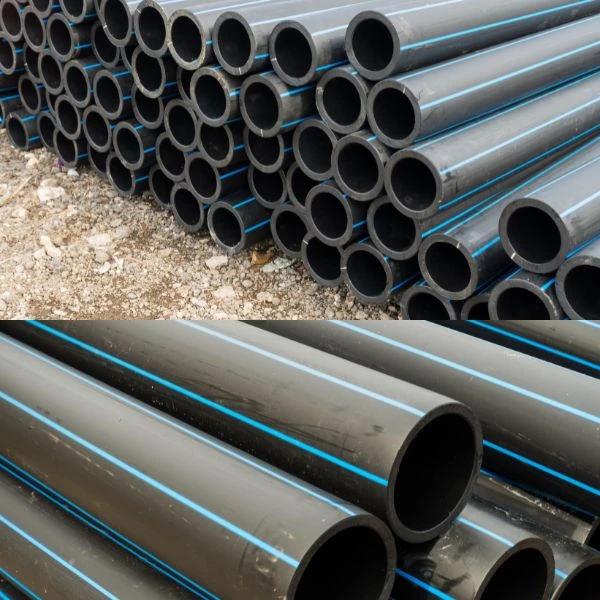Water pipe are the lifeblood of every building, whether it’s a residential home, an office building, or an industrial complex. They transport essential resources, such as fresh water and sewage, making their integrity crucial to daily operations. But what happens when something goes wrong? What if a water pipe is damaged due to external factors, such as a city construction crew? And more importantly, who is responsible for the repair costs?
In this article, we’ll explore the situation where a city construction crew breaks a water pipe and the consequences this has for landlords and property owners. We’ll discuss responsibility, legal aspects, and practical steps that landlords can take to resolve such issues. This guide is crucial for anyone involved in property management or construction-related issues, as understanding these complexities can save both time and money in the long run.

The Incident: City Construction Crew Breaks Water Pipe
Imagine this scenario: a construction crew working for the city is digging to repair or upgrade underground utilities near your property. In the course of their work, the crew accidentally strikes a water pipe that runs under your building’s property. The water begins to spill, and before long, the property starts to experience water damage. After the incident, the construction crew informs the landlord that the pipe was broken and demands that the landlord pay for the damages.
This situation may seem unfair to the property owner. After all, the damage occurred due to an external event, one that wasn’t directly caused by the landlord or any tenant. Yet, in many cases, landlords are faced with repair costs and the responsibility for fixing the pipe. Why does this happen, and what can landlords do about it?
Who is Responsible for the Water Pipe Damage?
The responsibility for paying for the damage depends on several factors, including local laws, the type of property, and the terms of the lease agreement. Let’s break this down:
1. Who Owns the Water Pipe?
One of the key questions in determining liability is ownership. Generally, a water pipe that serves a property and runs from the public water supply into the building is considered part of the landlord’s infrastructure, making them responsible for its upkeep and maintenance. However, if the pipe in question is located within the public right-of-way or is part of a city or municipal infrastructure, responsibility could lie with the city or local government.
2. Public or Private Property?
In most cases, the water pipes that supply water to private properties are considered to be part of the property’s plumbing system once they pass beyond the meter or boundary line. If the water pipe was damaged within the public right-of-way (e.g., beneath the sidewalk or street in front of the building), the city may be responsible for the repairs, depending on local ordinances.
However, if the break occurred on the landlord’s private property (such as inside the building or in a private underground pipe), the responsibility typically falls on the landlord to repair the water pipe and pay for any resulting damages.
3. Insurance Coverage
Landlords are often advised to carry insurance policies that cover water damage and plumbing issues. If a city construction crew is responsible for breaking the pipe, the landlord may be able to file a claim with their property insurance. The success of this claim depends on the specifics of the policy, including any clauses related to accidents caused by third parties or public works.
Landlords should also check whether their insurance covers external water line damage or whether an additional rider or endorsement is needed for comprehensive coverage.
Legal Considerations
Understanding the legal framework surrounding property damage caused by construction crews is essential. Different regions may have different laws that affect responsibility for repairs and costs. Here are a few general legal principles that landlords should consider:
1. Negligence and Liability
If the city construction crew broke the water pipe through negligence, they may be liable for the costs of the repair. Negligence occurs when a party fails to exercise reasonable care in preventing damage or harm. In the case of construction work, this could mean failing to properly mark underground utilities, not following safety protocols, or improperly handling equipment.
If negligence can be proven, the city or construction company may be responsible for the costs of repairs and any resulting damage. However, this would require evidence and, often, legal assistance to establish a claim.
2. Eminent Domain
In some cases, municipalities have the right to perform work on private property through eminent domain. However, this right is limited and typically involves compensation for property owners who are affected by such work. If construction work leads to water pipe damage, the city may be required to compensate the landlord, although this process can be lengthy and complex.
3. Utility Agreements
Many property owners enter into agreements with local utilities that outline responsibility for maintaining water lines. If the water pipe that was damaged is part of the utility’s infrastructure (e.g., located in the street or near the sidewalk), these agreements may specify who is responsible for the damage. It’s important for landlords to review their agreements with utility companies to understand their obligations and rights in such situations.
Steps Landlords Can Take After a Water Pipe is Damage
Dealing with water pipe damage caused by a city construction crew requires a series of immediate steps. Below is a practical guide for landlords to follow:
1. Document the Damage
When a water pipe is damage, it’s crucial to document everything. Take photographs or video footage of the damaged pipe and any water or property damage that results. Keep detailed records of communication with the construction crew, the city, and any contractors involved in the repair work. This documentation will be vital if legal action or insurance claims become necessary.
2. Contact Your Insurance Company
Notify your insurance company as soon as possible. Provide them with the documentation and explain the situation. Your insurer will guide you through the process of filing a claim, including assessing coverage for repairs and any water damage to the property.
3. Request a Copy of the Report from the Construction Crew
Ask the construction company or city workers for a written report of the incident. This should include details about what happened, when the pipe was damage, and how it was damage. This can serve as critical evidence in determining liability.
4. Consult an Attorney
If you’re unsure about your legal rights or if the situation becomes contentious, it’s wise to consult with an attorney. A legal expert can help you understand local laws and advise you on the best course of action, including pursuing claims against the city or construction company if applicable.
5. Work with Contractors
Hire licensed and insured contractors to assess the damage and begin repairs as quickly as possible. Depending on the severity of the damage, you may need to repair the pipe immediately to avoid further issues, such as water contamination or flooding. Contractors will also help you determine the cost of repairs and ensure the work meets local building codes.
Preventive Measures for Landlords
While accidents like these are unfortunate, landlords can take steps to prevent or minimize the risk of water pipe damage caused by construction crews. Here are a few tips:
- Know Your Property’s Infrastructure: Familiarize yourself with the layout of your water pipes, including the location of any pipes that run under public roads or sidewalks.
- Regular Inspections: Conduct routine inspections of the property’s plumbing system to catch any issues early before they become larger problems.
- Maintain Open Communication with Local Authorities: If construction work is schedule near your property, maintain communication with the local municipality or city contractors to ensure that all utilities are properly marke and that construction activities avoid damaging critical infrastructure.
Conclusion
Water pipe damage caused by city construction crews is an unfortunate situation that can lead to significant disruption and repair costs. Understanding who is responsible for repairs, knowing your legal rights, and taking immediate action can help landlords minimize the impact of such incidents. Remember that insurance, legal consultation, and proper documentation are key to protecting yourself in the event of damage to your property.
FAQs
1. Who is responsible for repairing a water pipe damaged by a construction crew? Responsibility depends on the location of the pipe and local laws. If the damage occurs on public property, the city may be liable. If it occurs on private property, the landlord is typically responsible for repairs.
2. Can a landlord claim insurance for water pipe damage caused by a construction crew? Yes, landlords may be able to file a claim with their insurance company if their property is damaged due to external factors like construction work. It’s important to check the policy for coverage details.
3. What should a landlord do immediately after discovering water pipe damage? Landlords should document the damage, contact their insurance company, and consult with a licensed contractor to assess and repair the damage.
4. How can a landlord prevent water pipe damage from construction crews? Landlords should maintain communication with local authorities and construction crews and ensure that their property’s infrastructure is clearly marke and protected during nearby construction.
5. Can I sue a construction company for damaging my water pipe? If the construction company’s actions were negligent and caused the damage, you may have grounds to pursue legal action. Consult an attorney to discuss the specifics of your case.


















